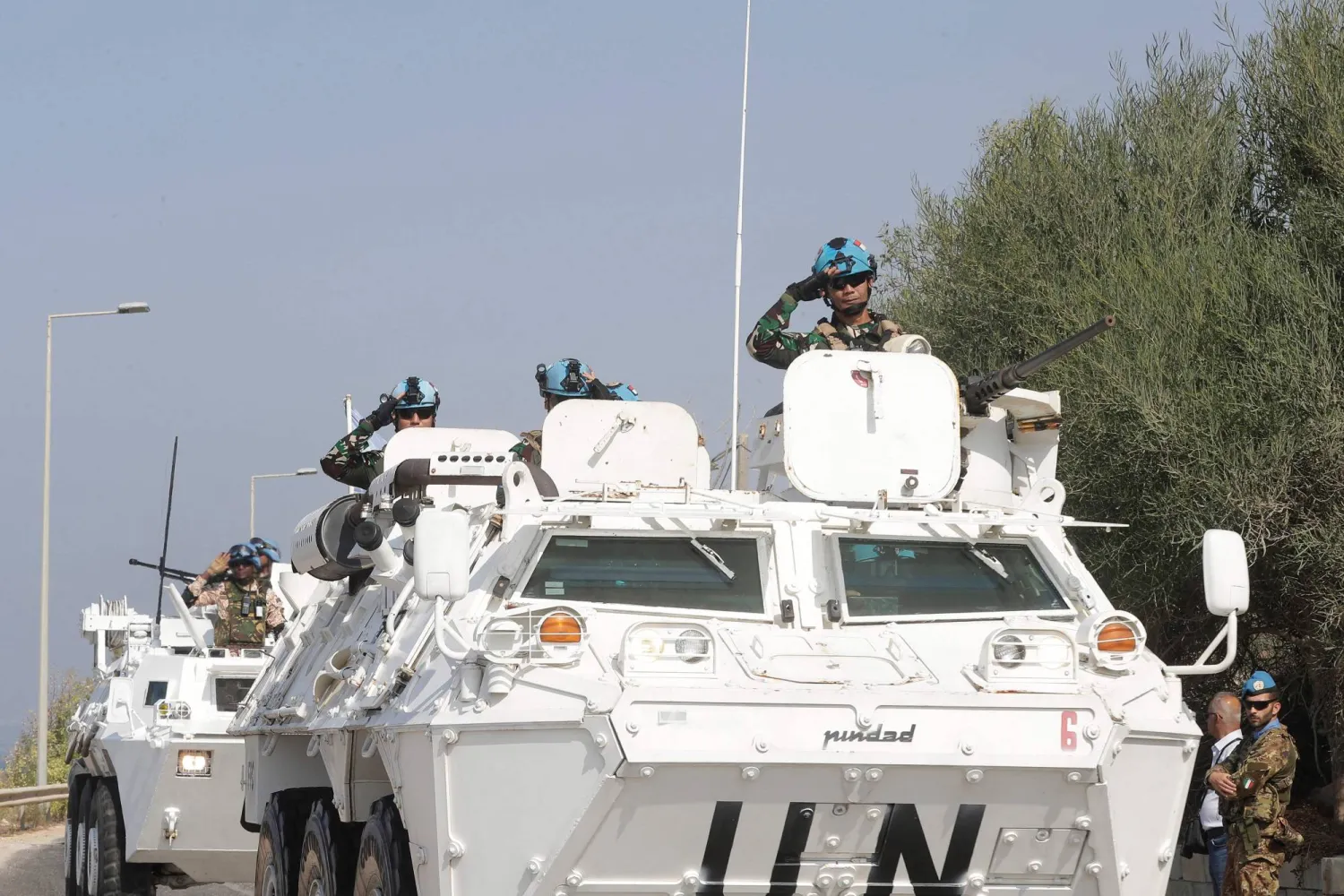Ongoing investigations into an incident at the weekend in which three UN observers and their translator were wounded said a landmine planted close to Lebanon’s border with Israel wounded them, without specifying the side responsible for planting it.
The four members of the UN's technical observation mission in southern Lebanon were wounded as they were carrying out a foot patrol in south Lebanon on Saturday, where armed group Hezbollah has been trading fire with the Israeli military across the border.
Two security sources said the observers were wounded in an Israeli strike outside the border town of Rmeish. The Israeli military denied involvement in the incident, implicating Hezbollah instead.
A judicial source told Asharq Al-Awsat that a joint investigation by the army and UNIFIL said that a landmine planted in the area set off the blast. It still has yet to determine who planted the mine, noting three mines were in the area, "one of which exploded".
Andrea Tenenti, spokesperson for the UN peacekeeping mission UNIFIL, said its "preliminary investigation showed that the incident was not caused by direct or indirect fire onto the group of UNTSO observers and their translator.
"The investigation to determine the exact cause of the blast is ongoing”.
The observers were from Chile, Australia and Norway while the translator was Lebanese.
Israel's military said Wednesday it had obtained information that indicated a Hezbollah explosive charge had caused the blast.
A source close to Hezbollah told AFP the Iran-backed group would "certainly not respond to the Israeli accusations", adding that the matter was in the hands of UNIFIL and the army.
Lebanon's state-run National News Agency had reported Saturday that an "enemy (Israeli) drone" raided the Rmeish area where the blasts struck.
The Israeli army had told AFP: "We did not strike in the area".
Israel and Hezbollah have exchanged near-daily fire since Palestinian group Hamas carried out an unprecedented attack on southern Israel on October 7, triggering war in Gaza.
The cross-border hostilities have killed at least 349 people in Lebanon, mostly Hezbollah fighters, but also at least 68 civilians, according to an AFP tally.
The fighting has displaced tens of thousands of people in southern Lebanon and in northern Israel, where the military says 10 soldiers and eight civilians have been killed.
The UN Truce Supervision Organization was set up after the 1948 war that accompanied Israel's creation to monitor armistice agreements reached with its Arab neighbors.
It also assists other UN peacekeeping operations in the region, including UNIFIL, which was established after Israel's 1978 invasion of south Lebanon and expanded following a 2006 war between Hezbollah and Israel.









